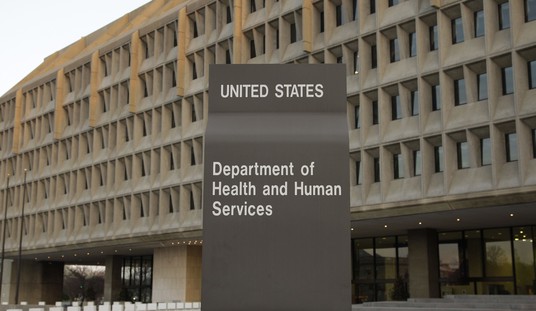Hard to believe there’s a “but,” huh? The strongest gravitational pull in American politics is exerted by the state of the economy. If the market is rolling and jobs are being created, you’ve got a happy public. And a happy public tends to stick with the incumbents who made them happy.
But there’s the rub. Who gets credit for the state of the economy 11 months into the Trump era?
A total of 63 percent of American voters say in a poll released today the nation’s economy is “excellent” or “good,” while 34 percent say it is “not so good” or “poor,” the highest positive rating for the economy since the Quinnipiac University Poll began asking the question in 2001.
A total of 76 percent of voters describe their own financial situation as “excellent” or “good,” as 23 percent say “not so good” or “poor,” the independent Quinnipiac (KWIN-uh-pe- ack) University Poll finds…
In fact, voters disapprove 51 – 44 percent of the way President Trump is handling the economy.
Even a plurality of Democrats, 49/46, rate the state of the economy as excellent or good rather than fair or poor. Among white Americans across all parties, it’s 71/26. Exploding public optimism on prosperity should lead to exploding presidential job approval, but not only is Trump underwater overall, he’s underwater specifically on his handling of the economy. That’s so bizarre that it may well be unprecedented in American history. In political gravity terms, it’s like tossing a ball into the air that never comes down. How can this be happening?
Quinnipiac offers one, and possibly the only, explanation. To many Americans, it’s still Obama’s economy:

That’ll change as we get deeper into Trump’s presidency, of course. Hardcore Trump-haters will never credit him; he’s underwater on the economy in this poll because he’s underwater on *everything,* all by wider margins than he is on his economic handling. If you deeply dislike Trump, as many Americans do, you’re reluctant to praise him even when praise should flow naturally from your view of other subjects. But not everyone is a diehard anti-Trumper. If the market stays aloft and America continues to add jobs, some independents and Democrats will come around to higher approval for him on the economy. And Republicans, needless to say, will reach a state of near unanimity that he deserves all of the credit, not Obama.
There are a million reasons to hope the economy’s as good next fall as it is now but one myopic one among political junkies is that it’ll set up one of the great political-gravity experiments of modern times: Can a party in total control of government really get wiped out if the electorate is enthusiastic about economic growth? Everything points to a Democratic wave right now — surprising Dem victories in Virginia and Alabama, brutal generic ballot numbers for the GOP, Trump’s abiding dismal job approval rating, the tradition of out-parties doing well in midterms, and on and on. But if anything can break that wave, it’s a rosy economic outlook. What happens when an irresistible political force, i.e. angry liberals in a frenzy to vote, meets an immovable political object, i.e. a country that wants to keep its economic momentum going by preserving the status quo in Washington?
Maybe … the irresistible force wins:

That’s the second time in as many days that a gruesome double-digit generic ballot number has been dropped on the GOP, and here it’s being dropped amid economic positivity that Republicans could only have dreamed of when they took power this past January. If they get wiped out this fall anyway, it’ll be another item on the list of the many unprecedented things about Trump’s presidency.
In lieu of an exit question, one more data point for you from the Quinnipiac poll. This one’s unrelated to the economy but fascinating. Compare…

…and contrast:

The public, especially independents, is much more satisfied with Democrats booting Conyers and Franken out of Congress than it is with the GOP’s tapdancing around the charges against Trump and Roy Moore. #MeToo isn’t the sort of issue you’d expect to directly influence any votes, but could it influence them indirectly by leading undecided voters to view Republicans through a darker lens generally? I don’t know. Look again at that generic ballot table up above, specifically the numbers for men versus women. That’s a big gender gap. Is it as big as it is because women lean left generally or is it as big as it is because women are souring on the GOP for particular reasons?







Join the conversation as a VIP Member